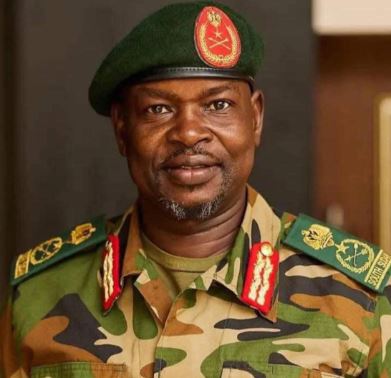In a move that stunned even the most jaded observers of South Sudan’s political decay, President Salva Kiir issued a decree appointing U.S.-sanctioned tycoon Bol Mel as First Vice Chairperson of the SPLM. Widely viewed as the launching pad to the presidency, this role now places a man blacklisted for grand corruption in direct line to lead the country.
Mel’s appointment as 1st Vice Chairperson of the SPLM is more than an internal reshuffle. It marks a tipping point. What was once a fragile, post-conflict state limping toward reform has now crossed a dangerous threshold. South Sudan has transitioned into a criminal state with Bol Mel, a figure under active U.S. sanctions, at its helm in-waiting.
Bol Mel’s appointment as Vice President was already a legal and ethical outrage; his elevation to First Vice Chairperson of the ruling SPLM now sets the stage for full-blown state capture. This is not just political manoeuvring; it is the formalisation of a criminal state, with a U.S.-sanctioned ‘businessman’ being groomed for the presidency in
open defiance of constitutional order and international norms.
Bol Mel remains listed under Global Magnitsky sanctions for looting public funds through a web of companies and still chairs ABMC Thai-SS & related oil/road outfits. His appointment violates multiple provisions of South Sudan’s Transitional Constitution, including Art 121(2), which bars public officials from practising “any private profession, transact commercial business,” and the R-ARCSS demands “clean, transparent and accountable”. Beyond domestic
law, his rise flouts binding international commitments under the UN Convention Against Corruption and the African Union Anti-Corruption Convention, both demanding the exclusion of officials credibly implicated in graft.
His rise to the top echelons of power transforms South Sudan from a fragile post-conflict state into something far more dangerous: a criminal enterprise with a seat at the UN. The consequences are neither abstract nor delayed. Bol Mel is listed under U.S. Global Magnitsky sanctions, making all dollar-based transactions involving him legally hazardous. This puts every donor disbursement, every bank transfer, every IMF or World Bank tranche in even more immediate jeopardy and is most likely to force more correspondent banks to scale back services, fearing exposure to secondary sanctions and reputational damage.
What’s at stake, and why is it a global risk?
a) Legal and financial red flags: South Sudan is entering a legal and financial danger zone with the appointment of Bol Mel, a U.S.-sanctioned ‘businessman, as head of the treasury. His role triggers cascading violations of global fiduciary, anti-corruption, and sanctions frameworks.
b) Violation of fiduciary safeguards: Bol Mel’s appointment breaches Article V (1) of the IMF Articles of Agreement and the World Bank’s Anti-Corruption Guidelines. Both institutions prohibit dealings with “designated persons,” risking blocked disbursements and the suspension of existing programmes.
c) Donor treaty exposure: Bilateral and multilateral donors may violate their obligations under the UN Convention Against Corruption (UNCAC) and domestic laws by funding a regime led by a sanctioned individual, inviting legal challenges, public scrutiny, and political blowback.
d) Sanctions risk on transactions: Bol Mel is listed on the U.S. Treasury’s Specially Designated Nationals (SDN) list. Any financial transaction he touches risks secondary sanctions, asset freezes, and international banking lockouts. Every payment becomes a legal and reputational liability.
e) Collapse of fiscal oversight: Bol Mel, in charge, affirms the saying that “when the hyena is in charge of the goats, there will be no one left to count.” Procurement turns into institutionalised self-dealing. Audits are meaningless, and public finance credibility evaporates.
f) Oil revenue already mortgaged: A $13 billion oil-backed loan to a shadowy UAE shell company has pledged South Sudan’s future crude exports until 2042. UN experts have flagged the deal’s terms as red flags of corruption, a deal that allegedly might implicate Mel.
g) AML/CFT breakdown: South Sudan remains on the FATF grey list, with all reform benchmarks missed. The country lacks a Financial Intelligence Unit, beneficial ownership registry, and enforceable safeguards, making it a magnet for illicit finance and terrorism risk.
Recommended Actions for the International Community
a) Suspend all direct budget support: Redirect aid through pooled trust funds with independent oversight mechanisms. Do not legitimise a regime whose financial chain leads to a sanctioned kleptocrat.
b) Issue pre-emptive sanctions advisories: The U.S. Treasury and the EU should issue formal advisories warning
financial institutions of the compliance risks tied to South Sudan’s oil flows and sovereign accounts.
c) Trigger institutional firewalls: The IMF and World Bank must pause all disbursements and demand new
Safeguards Assessments and proof of asset divestiture from sanctioned individuals.
d) Reclassify South Sudan in risk frameworks: Financial institutions must immediately designate South Sudan as a Category C jurisdiction, high risk for money laundering, sanctions exposure, and governance failure.
Bottom Line: The appointment of Bol Mel marks South Sudan’s final descent into kleptocracy. This is not “business as usual” for a post-conflict state. It is a deliberate installation of a sanctions-listed mogul into the heart of sovereign power. From this point forward, every dollar sent to Juba is not aid but accomplice money.
This statement was released by Reclaim Campaign, a South Sudanese civil society coalition. Contact: reclaimss@tutamail.com.




